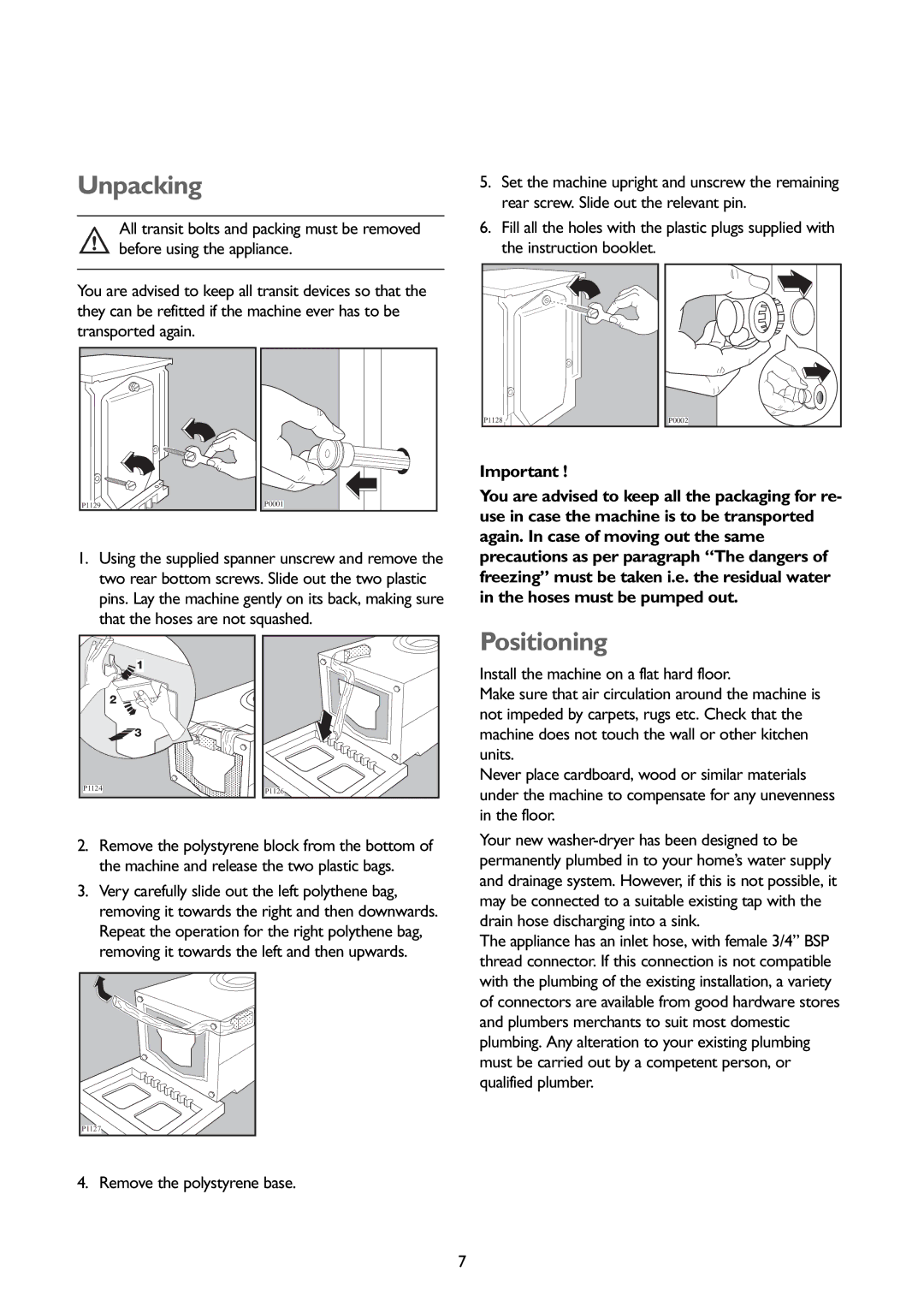
Unpacking
All transit bolts and packing must be removed before using the appliance.
You are advised to keep all transit devices so that the they can be refitted if the machine ever has to be transported again.
5.Set the machine upright and unscrew the remaining rear screw. Slide out the relevant pin.
6.Fill all the holes with the plastic plugs supplied with the instruction booklet.
P1129 |
P0001 |
Important !
You are advised to keep all the packaging for re- use in case the machine is to be transported again. In case of moving out the same
1.Using the supplied spanner unscrew and remove the two rear bottom screws. Slide out the two plastic pins. Lay the machine gently on its back, making sure that the hoses are not squashed.
precautions as per paragraph “The dangers of freezing” must be taken i.e. the residual water in the hoses must be pumped out.
1 |
2 |
3 |
P1124 |
P1126 |
Positioning
Install the machine on a flat hard floor.
Make sure that air circulation around the machine is not impeded by carpets, rugs etc. Check that the machine does not touch the wall or other kitchen units.
Never place cardboard, wood or similar materials under the machine to compensate for any unevenness in the floor.
2.Remove the polystyrene block from the bottom of the machine and release the two plastic bags.
3.Very carefully slide out the left polythene bag, removing it towards the right and then downwards. Repeat the operation for the right polythene bag, removing it towards the left and then upwards.
P1127 |
4. Remove the polystyrene base.
Your new
The appliance has an inlet hose, with female 3/4” BSP thread connector. If this connection is not compatible with the plumbing of the existing installation, a variety of connectors are available from good hardware stores and plumbers merchants to suit most domestic plumbing. Any alteration to your existing plumbing must be carried out by a competent person, or qualified plumber.
7
